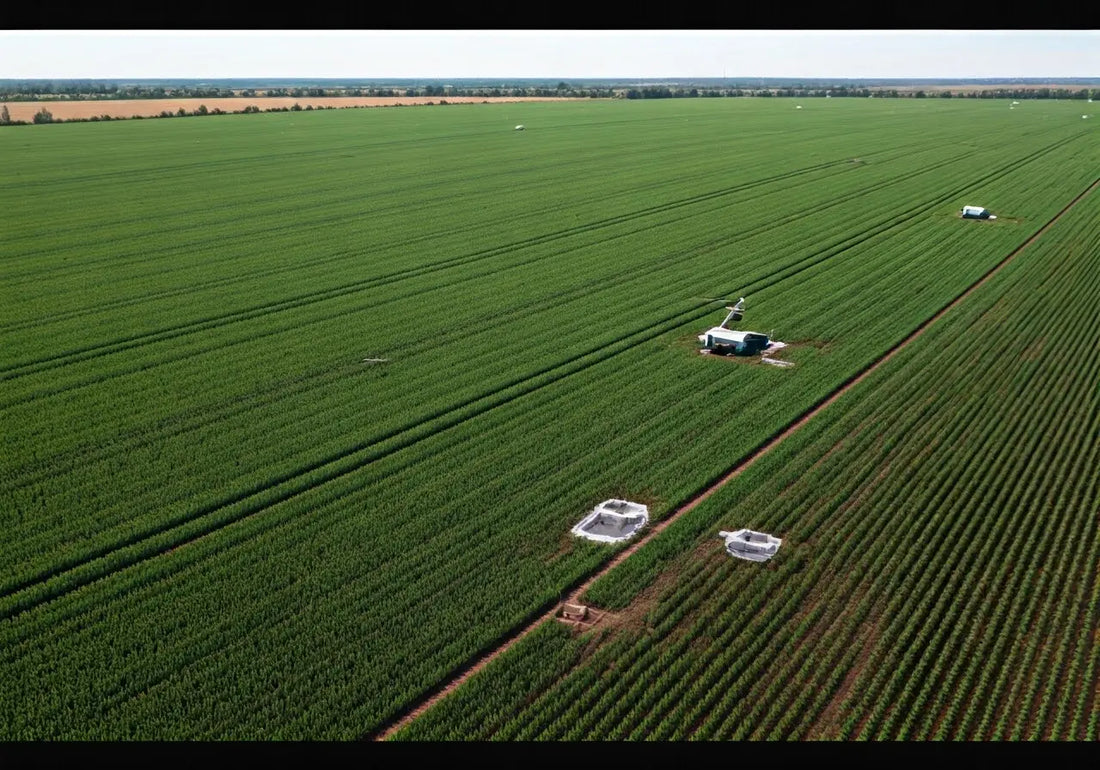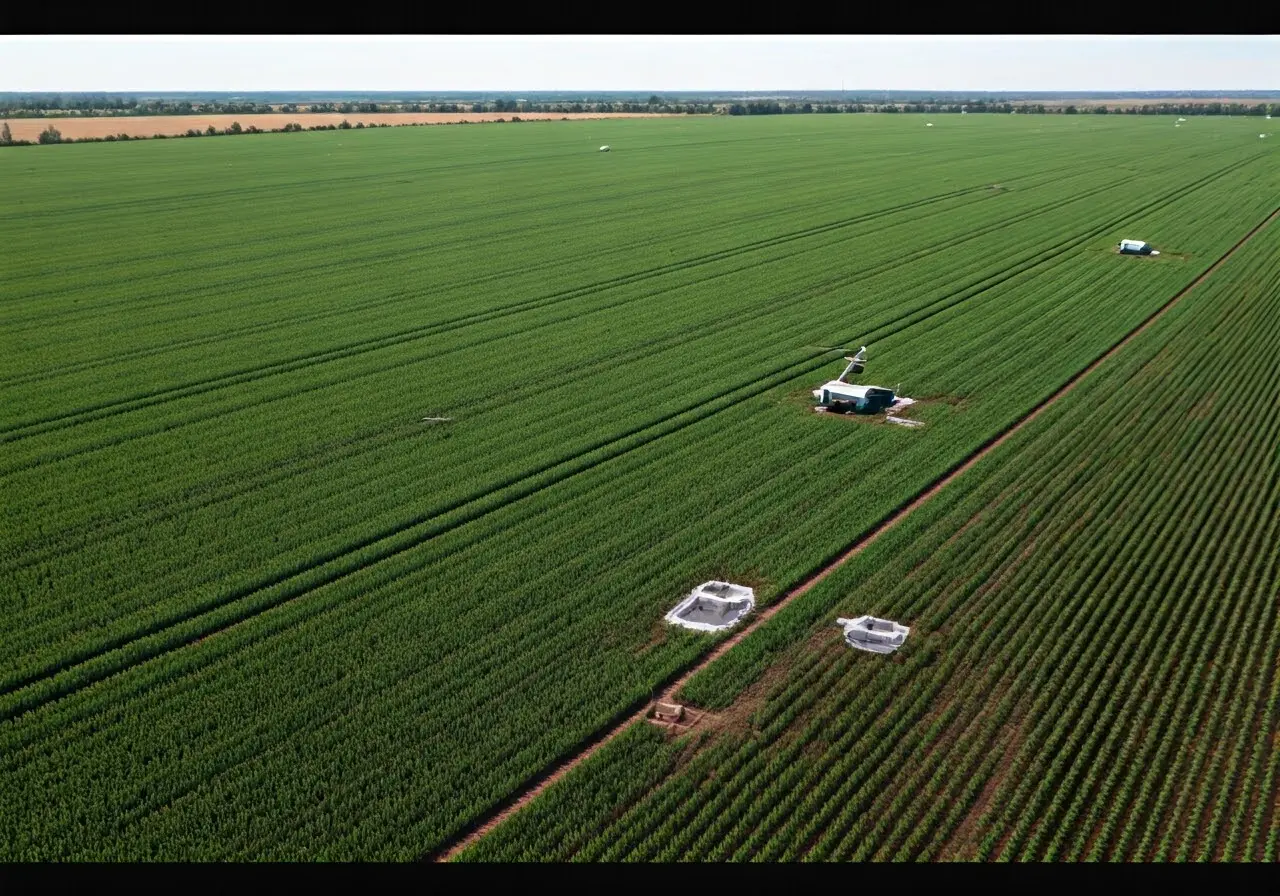
How Precision Agriculture Drones Are Revolutionizing Farming
Share
In the rapidly evolving world of agriculture, technology is playing a crucial role in transforming traditional practices into more efficient, sustainable, and productive systems. Among the newest innovations are precision agriculture drones, which are fast emerging as vital tools for modern farmers. In this blog post, we’ll explore how these drones are changing the face of farming, making it more precise, data-driven, and efficient.
An Overview of Precision Agriculture
Precision agriculture is a farming management concept that uses technology to monitor, measure, and analyze the needs of crops and the conditions of their growth. By implementing this approach, farmers can apply precise amounts of resources, such as water and fertilizers, to achieve optimal growth and yield. The adoption of precision agriculture is essential as the global population continues to grow, which increases the demand for food production. By leveraging technology, including advanced sensors and data analytics, farmers are able to enhance productivity while minimizing waste and preserving the environment.
A crucial aspect of precision agriculture is understanding field variability and adapting tactics accordingly. This involves collecting data on soil conditions, crop health, and weather patterns to make informed decisions. Modern technologies, such as GPS and soil sensors, play a pivotal role in gathering and analyzing this data efficiently. As highlighted in research by Intellias, AI integration into precision agriculture is revolutionizing the sector by optimizing crop growth and promoting sustainability.
Precision agriculture’s impact is seen in its ability to maximize yields and reduce costs. It provides a systematic approach that allows farmers to manage their resources more effectively, leading to economic benefits such as higher profitability and reduced environmental damage. This sustainable approach is gaining momentum globally as more farmers are seeking innovative solutions to meet the challenges of modern agriculture, including limited land availability and changing climate conditions.
The Role of Drones in Precision Agriculture
Drones equipped with advanced sensors and imaging capabilities play a pivotal role in precision agriculture by providing farmers with vital data about their crops and fields, allowing them to make informed decisions with greater accuracy. Drones offer a bird’s-eye view of the farmland, quickly identifying areas requiring attention, such as water stress or pest infestations. Their ability to cover large distances in a short amount of time is unmatched by any other technology currently available.
The DJI Agras series drones stand out as revolutionary tools designed specifically for agricultural applications. These drones are not merely for collecting data—they are integrated with systems for direct action, such as spraying and seeding, which significantly reduces the need for manual labor. Such capabilities make them indispensable in precision agriculture, providing both observational and operational functionalities.
Benefits of Using Drones in Farming
Drones offer numerous advantages over traditional farming methods, including improved crop health monitoring, targeted nutrient application, and enhanced field scouting. These benefits contribute to reduced waste, increased yields, and heightened efficiency in agricultural practices. By utilizing high-resolution cameras and advanced imaging technologies, drones generate detailed maps highlighting problem areas within fields, enabling prompt interventions that safeguard crop health and optimize productivity.
The time and labor savings provided by drones are substantial. Tasks that once took days or weeks can now be completed in hours, allowing farmers to focus on more strategic aspects of farm management. As covered in our blog on farming efficiency, drones offer a competitive edge, reducing the need for excessive labor and enabling farms to operate more efficiently.
Challenges and Limitations
Despite their potential, precision agriculture drones face challenges such as high initial costs, regulatory hurdles, and the need for technical expertise. Addressing these challenges is crucial for widespread adoption and utilization in the farming industry. While the cost of drones may be offset by increased efficiency in the long run, the upfront investment can be a barrier, especially for smallholders. Moreover, navigating legal and regulatory frameworks around drone usage requires careful consideration.
Another limitation is the level of technical skill required to operate drones effectively. Farmers need training and support to integrate this technology into their practices successfully. However, as AI technologies continue to advance, we can anticipate simplified interfaces and automation features that will make drone operations more accessible to a broader audience.
Future Trends in Drone Technology for Agriculture
Emerging trends such as AI integration, autonomous drone systems, and enhanced imaging technology promise to further revolutionize the use of drones in agriculture. As these technologies develop, they hold the potential to significantly transform how farming is conducted globally. AI-driven drones can not only capture data but also analyze it in real-time, providing actionable insights to farmers. This capability enables smart decision-making and precision management of agricultural operations.
Moreover, advancements in automated flight technology will lead to drones that require minimal human intervention. These autonomous systems could handle complex tasks such as monitoring and treating crops, adapting to changing conditions with minimal input. The increased usage of AI in agriculture suggests that the focus will be on creating more sustainable and efficient farming ecosystems, reducing costs and environmental impacts while increasing productivity.
Looking Ahead: The Future of Farming
Precision agriculture drones are at the forefront of a technological revolution in farming. By providing detailed aerial insights, optimizing resource use, and reducing environmental impacts, these drones are paving the way for a more sustainable and efficient agricultural future. As technology continues to advance, the integration of drones will undoubtedly deepen, bringing even more innovative solutions to the agricultural industry. Discover how TJ Aerosense can help you integrate drones into your operations by visiting our homepage.

